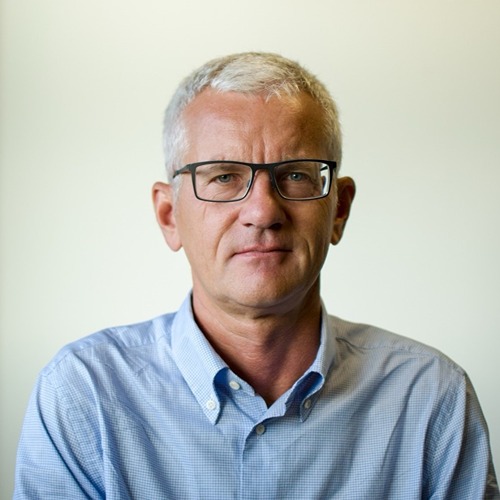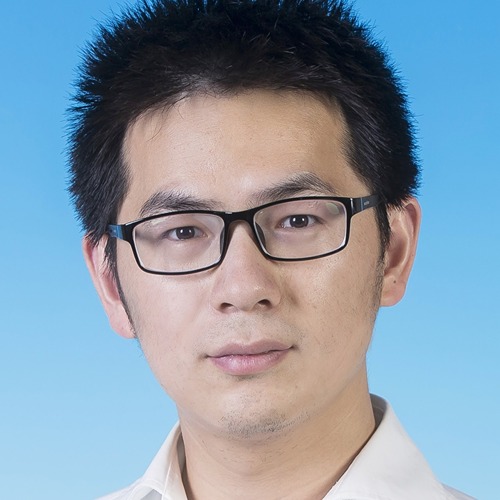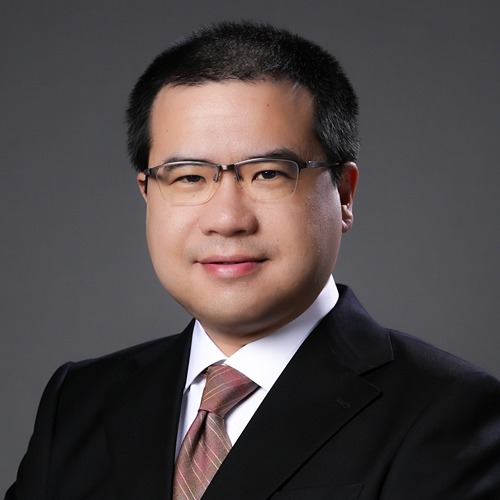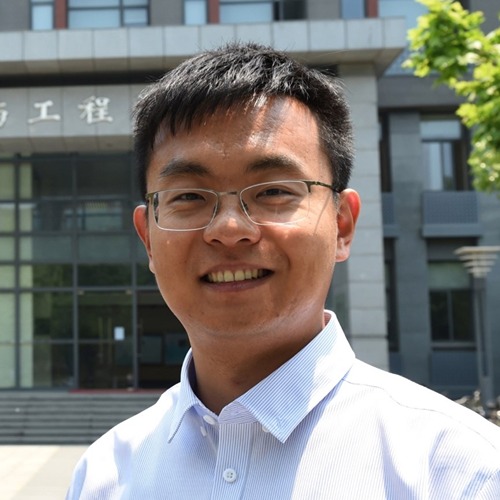
Organized by Tsinghua University, North University of China, Beijing Institute of Technology, Hebei University, Nature Sensors, Nature Nanotechnology, Nature Electronics, Nature Communications and Nature Materials.
The Nature conference on "Novel Materials and Devices for the Post-Moore Era" will address the challenges posed by the scaling limits of Si-transistors and Moore’s Law, exploring innovative materials and devices for next-generation computing. Selected keynotes and invited talks will focus on three major themes: the development of two-dimensional materials and devices, strategies for large-scale integration, and advanced sensing-memory-computing devices and 3D integrated systems.
Register Now Submit AbstractContact Us
Event details
Speakers

Kah-Wee Ang
National University of Singapore (NUS), Singapore
Dr. Kah-Wee Ang is a tenured Associate Professor in the Department of Electrical and Computer Engineering at the National University of Singapore (NUS), where he also serves as Director of Microelectronics Technologies & Devices. He concurrently holds a joint appointment as Chief Technology Officer at the National Semiconductor Translation and Innovation Centre (NSTIC). His current research focuses on neuromorphic computing technologies using 2D materials-based memories for artificial intelligence (AI) applications.
Prof. Ang has authored over 240 publications in journals and conference proceedings, delivered more than 50 keynote and invited talks, and holds 25 U.S. patents (granted or filed). He has been recognized with several prestigious honours, including the President’s Technology Award—Singapore’s highest accolade for outstanding contributions to science and technology. He is a recipient of the IEEE Paul Rappaport Award for the best paper in IEEE Transactions on Electron Devices and the Best Demo Paper at the 2019 Symposium on VLSI Technology and Circuits. His early research excellence was also recognized with the IEEE Electron Devices Society Graduate Fellowship and the inaugural TSMC Outstanding Research Gold Award. Under his mentorship, his research group has received the Young Researcher Award at the SSDM Conference for three consecutive years (2022–2024), underscoring their leading-edge contributions to the field of neuromorphic computing.

Wenzhong Bao
Fudan University, China
Wenzhong Bao is a full professor in the School of Microelectronics at Fudan University. He reveived his PhD from the University of California, Riverside in 2011, where he studied in the Department of Physics and Astronomy. He subsequently held postdoctoral positions at the University of Maryland College Park from 2011-2014 and at King Abdullah University of Science and Technology from 2014-2015. His current research interests involve emerging 2D semiconductors and their applications in next-generation electrical, optoelectrical, and energy devices. He was awarded the 2016 International Union of Pure and Applied Physics (IUPAP) Young Scientist Prize (C10) and the 2017 Hong Kong Qiushi Outstanding Young Scientist Prize.

Cinzia Casiraghi
University of Manchester, UK
Prof Casiraghi holds a Chair in Nanoscience at the Department of Chemistry, University of Manchester (UK). She is currently Head of Material chemistry and CSO of the Graphene Engineering Innovation Center, which is a cutting-edge, £60 million facility at the University of Manchester, designed to bridge the gap between academic discovery and industrial application.
She received her B.Sc. and M.Sc. in Nuclear Engineering from Politecnico di Milano (Italy) and her Ph.D. in Electrical Engineering from the University of Cambridge (UK). In 2005, she was awarded an Oppenheimer Research Fellowship, followed by the Humboldt Research Fellowship and the prestigious Kovalevskaja Award (1.5M Euro). She is the recipient of the Leverhulme Award in Engineering (£100k, 2016), the RSC Marlow Award (2014), in recognition of her work on Raman spectroscopy, and the RSC Gibson-Fawcett Award, for the development of water-based inks of 2D materials. She was awarded an ERC Consolidator (2015), an ERC Proof of Concept (2021) and an ERC (UKRI converted) advanced (2023). She has been involved in several UK and EU projects, including the Graphene Flagship (core 3, WP9 – printed electronics). She published more than 100 papers in prestigious journals, such as Nature nanotechnology, Nature Comms, ACS Nano and Adv. Materials, by collecting more than 43k citations.

Judy Cha
Cornell University, USA

Yang Chai
Hong Kong Polytechnic University, China
Prof. Yang Chai is the Chair Professor of Semiconductor Physics of the Hong Kong Polytechnic University. He is an IEEE Distinguished Lecturer, an IEEE Fellow, an Optica Fellow, the Vice President of the Physical Society of Hong Kong, a member of The Hong Kong Young Academy of Sciences, and an Associate Editor of ACS Nano. He is a receipt of the Falling Walls Science Breakthroughs in Engineering and Technology for his work on “Breaking the Wall of Efficient Sensory AI Systems” and the BOCHK Science and Technology Innovation Prize. His current research interest mainly focuses on emerging electronic devices.

Camilla Coletti
Istituto Italiano di Tecnologia, Italy
Camilla Coletti is a tenured Senior Scientist of the Istituto Italiano di Tecnologia (IIT) and principal investigator of the research line 2D Materials Engineering. She is the coordinator of the Center for Nanotechnology Innovation of Pisa and of the Graphene Labs. Her research is currently focused on: (i) synthesis and integration of scalable 2D materials for electronics, photonics and quantum technologies (ii) engineering van der Waals heterostructures. In her work she applies her background of surface scientist to impact science and technology of 2D materials. She is the author of more than 200 peer-reviewed publications, contributed to several book chapters and holds 3 international patents.

Erika Covi
University of Groningen, Netherlands
Dr. Erika Covi is an Assistant Professor at the Zernike Institute for Advanced Materials and the Groningen Cognitive Systems and Materials Centre, University of Groningen (Netherlands), where she leads the Cognitive Systems (CoSy) Group. She received her Ph.D. in Microelectronics from the University of Pavia (Italy) in 2014. Following her doctoral studies, she was a researcher at the National Research Council (CNR) of Italy and Politecnico di Milano (Italy). She later served as a Senior Scientist and Group Leader at NaMLab gGmbH in Dresden, Germany.
Her research focuses on the intersection of emerging memory devices, circuit design, and brain-inspired computing, with an emphasis on design-technology co-optimization (DTCO). Her work explores how the intrinsic physical properties of novel memory technologies can be leveraged to develop energy-efficient computational systems by integrating emerging memory devices with CMOS circuits. She has been awarded with the ERC Starting Grant.
Dr. Covi has co-authored approximately 50 publications in international journals and conferences, and she has served on the organizing committee of around 10 international conferences. She is a Senior Member of IEEE and serves on the Board of Governors of the IEEE Circuits and Systems Society.

Shinhyun Choi
KAIST, Korea
Dr. Shinhyun Choi is a KAIST Endowed Chair Professor and tenured Associate Professor. (tenured) in the School of Electrical Engineering at Korea Advanced Institute of Science and Technology (KAIST). His research focuses on (1) new emerging memory/computing device development using resistive switching elements; (2) its application in integrated systems such as edge computing, neuromorphic computing and memory functions; and (3) new operating mechanism development for conventional 3-terminal transistor-based memory device. He graduated Summa Cum Laude from Seoul National University, Korea in 2009 with a Bachelor of Science in Electrical Engineering. He obtained his Master’s and Ph.D. in Electrical Engineering at the University of Michigan, Ann Arbor in 2011 and 2015, respectively. He was a Postdoctoral Associate at Massachusetts Institute of Technology (MIT) from 2015 to 2018.
He is the author/co-author of peer-reviewed articles including Nature, Nature Electronics, Nature Materials, Nature Communications, Science Advances, Nano Letters, ACS Nano. His works have been selected as front covers in Nature, highlighted in Nature News & Views, Nature Materials News & Views, Nature Nanotechnology Research Highlights, and featured as cover pages on MIT news. His works have also been covered on numerous media outlets including EE Times, IEEE Spectrum, EE NEWs, The Verge and domestic press.

Zengfeng Di
Shanghai Institute of Microsystem and Information Technology (SIMIT), China
Zengfeng Di received the Ph.D. from the Shanghai Institute of Microsystem and Information Technology (SIMIT), Chinese Academy of Sciences (CAS), Shanghai, China, in 2006. From 2006 to 2010, he worked as a postdoc at Los Alamos National Laboratory (LANL) in US. In 2010, he was appointed as a professor by SIMIT, CAS. He has published more than 200 peer-reviewed papers in the well-known journals including Nature, Nature Electronics, Nature Communications, Science Advances, etc. He has also obtained more than 100 authorized patents. In addition, he has achieved National Science Fund for Distinguished Young Scholars, National Science Fund for Excellent Young Scholars, etc. His research interest covers advanced silicon-on-insulator (SOI) materials, two dimensional materials, microelectronic and optoelectronic devices, etc.

Mark Hersam
Northwestern University, USA
Mark C. Hersam is the Walter P. Murphy Professor of Materials Science and Engineering, Director of the Materials Research Center, and Chair of the Materials Science and Engineering Department at Northwestern University. He also holds faculty appointments in the Departments of Chemistry, Applied Physics, Medicine, and Electrical Engineering. He earned a B.S. in Electrical Engineering from the University of Illinois at Urbana-Champaign (UIUC) in 1996, M.Phil. in Physics from the University of Cambridge (UK) in 1997, and Ph.D. in Electrical Engineering from UIUC in 2000. His research interests include nanoelectronic materials, additive manufacturing, scanning probe microscopy, renewable energy, sensors, neuromorphic computing, and quantum information science. Dr. Hersam has received several honors including the Presidential Early Career Award for Scientists and Engineers, TMS Robert Lansing Hardy Award, MRS Mid-Career Researcher Award, AVS Medard Welch Award, U.S. Science Envoy, MacArthur Fellowship, and eight Teacher of the Year Awards. Dr. Hersam has been repeatedly named a Clarivate Analytics Highly Cited Researcher with over 700 peer-reviewed publications that have been cited ~80,000 times. An elected member of the American Academy of Arts and Sciences, National Academy of Engineering, and National Academy of Inventors with over 170 issued and pending patents, Dr. Hersam has founded two companies, NanoIntegris and Volexion, which are suppliers of nanoelectronic and battery materials, respectively. Dr. Hersam is a Fellow of MRS, ACS, ECS, AVS, APS, AAAS, SPIE, and IEEE, and also serves as an Executive Editor of ACS Nano.

Daniele Ielmini
Politecnico di Milano, Italy
Daniele Ielmini is a Professor at the Dipartimento di Elettronica, Informazione e Bioingegneria, Politecnico di Milano, Italy. He received the Ph.D. from Politecnico di Milano in 2000. He held visiting positions at Intel Corporation (2006), Stanford University (2006) and the University of Illinois at Urbana-Champaign (2010). His research interests include non-volatile memories, such as phase change memory (PCM), resistive switching memory (RRAM), and spin-transfer torque magnetic memory (STT-MRAM), and novel in-memory computing circuits for neuromorphic engineering and AI. He authored/coauthored 20 book chapters, more than 400 papers published in international journals and presented at international conferences, and 10 patents. He is Associate Editor of IEEE Trans. Nanotechnology and Semiconductor Science and Technology. He received the Intel Outstanding Researcher Award, the Ovshinsky Award, the IEEE-EDS Paul Rappaport Award, the ERC Consolidator Grant and the ERC Advanced Grant. He is a Fellow of the IEEE.

Deep Jariwala
University of Pennsylvania (Penn), USA
Deep Jariwala is an Associate Professor and the Peter & Susanne Armstrong Distinguished Scholar in Departments of Electrical and Systems Engineering and Materials Science and Engineering at the University of Pennsylvania (Penn). His research interests broadly lie at the intersection of new materials, surface science and solid-state devices for computing, sensing, opto-electronics and energy harvesting applications. Deep completed his undergraduate degree in Metallurgical Engineering from the Indian Institute of Technology, Banaras Hindu University in 2010. Deep went on to pursue his Ph.D. in Materials Science and Engineering at Northwestern University graduating in 2015. At Northwestern, Deep made contributions to the study of charge transport and electronic applications of two-dimensional (2D) semiconductors and their devices for which he was awarded the Johannes and Julia Weertman Doctoral Fellowship and the Hilliard Award of the department. Deep then moved to Caltech as a Resnick Prize Postdoctoral Fellow from 2015-2017 working on nanophotonic devices and ultrathin solar cells, before joining Penn in 2018 to launch his independent career. Deep’s research has earned him awards of multiple professional societies including the Adolph Lomb Medal of Optica (formerly OSA), the Peter Mark Memorial Award and Paul H. Holloway Award of the American Vacuum Society, The Richard L. Greene Dissertation Award of the American Physical Society, the Army Research Office and Office of Naval Research Young Investigator Awards, Nanomaterials Young Investigator Award, TMS Frontiers in Materials Award, Intel Rising Star Award, IEEE Photonics Society Young Investigator Award, IEEE Nanotechnology Council Early Career Award, IEEE Benjamin Franklin Key Award, IUPAP Early Career Scientist Prize in Semiconductors, the SPIE early career achievement award, the Alfred P. Sloan Fellowship in addition to being named in Forbes Magazine list of 30 scientists under 30 and is an invitee to Frontiers of Engineering conference of the National Academy of Engineering. In 2022, his work on ferroelectric diode memory was also awarded with the prestigious Bell Labs Prize worth 100000 $. In addition, he has also received the S. Reid Warren Jr. award and Undergraduate Research Mentoring award given to one faculty member every year at Penn Engineering for inspiring and motivating undergraduate students through teaching and research. He currently serves as an Associate Editor (AE) for ACS Nano Letters and has served as an AE for IEEE Photonics Technology Letters as well as npj 2D materials and applications in the past. He has published over 170 journal papers with more than 23000 citations and 10 patents. At Penn he leads a research group comprising more than ten graduate and postdoctoral researchers supported by a variety of government agencies (NSF, DARPA, ARO, AFOSR, ONR), industries and private foundations.
Google Scholar: https://scholar.google.com/citations?user=u1CHA2sAAAAJ&hl=en
Lab website: https://jariwala.seas.upenn.edu/

Jeehwan Kim
MIT, USA
Prof. Jeehwan Kim is a tenured faculty at MIT. His research group focuses on material innovations for next generation computing and electronics. Prof. Kim joined MIT in September 2015. Before joining MIT, he was a Research Staff Member at IBM T.J. Watson Research Center in Yorktown Heights, NY since 2008 right after his Ph.D. He worked on next generation CMOS and energy materials/devices at IBM. Prof. Kim is a recipient of 20 IBM high value invention achievement awards. In 2012, he was appointed a “Master Inventor” of IBM. After joining MIT, he continuously worked nanotechnology for advanced electronics/photonics and their 3D systems. As its recognition, he received LAM Research foundation Award, IBM Faculty Award, DARPA Young Faculty Award, and DARPA Director’s Fellowship. He was also elected as Samsung Fellow in 2022. He is an inventor of > 200 issued/pending US patents and an author of > 100 articles in peer-reviewed journals. He currently serves as Associate Editor of Science Advances, AAAS. He received his B.S. from Hongik University, his M.S. from Seoul National University, and his Ph.D. from UCLA, all of them in Materials Science.

Theresia Knobloch
TU Wien, Austria
Theresia Knobloch is an assistant professor at TU Wien focusing on the fabrication, experimental characterization, design, and modeling of nanoelectronic devices based on 2D materials. In this research field, she primarily studies the stability and reliability of 2D material based field-effect transistors with a particular focus on nanoscaled devices and the role the insulators play for device performance. She obtained her doctoral degree from TU Wien in 2021 and received her doctoral degree in a sub auspiciis doctoral graduation, the highest possible distinction for academic achievements for a doctoral degree in Austria. Dr. Knobloch performed part of her research as a visiting scholar at MIT, MA, USA, in 2023 and Purdue University, IN, USA, in 2018 and 2019. She received several awards for her work, including the IEEE EDS Ph.D. Student Fellowship in 2021 and the Best Student Paper Award at the DRC in 2020. She has co-authored over 50 peer-reviewed journal papers and conference contributions, and has given invited talks and tutorials at several conferences, including the IEDM, the IRPS, and the Graphene Week. She serves as a reviewer for numerous journals including Nature, Nature Electronics, Advanced Materials, Nature Communications, and ACS Nano.

Mario Lanza
National University of Singapore, Singapore
Dr. Mario Lanza is an Associate Professor of Materials Science and Engineering at the National University of Singapore since August 2024. He got the PhD in Electronic Engineering in 2010 at the Autonomous University of Barcelona, where he won the extraordinary PhD prize. In 2010-2011 he was NSFC postdoctoral fellow at Peking University, and in 2012-2013 he was Marie Curie postdoctoral fellow at Stanford University. In September 2013 he joined Soochow University (in China), where he promoted until the rank of Full Professor. Between October 2020 and July 2024, he was full-time Associate Professor at the King Abdullah University of Science and Technology (in Saudi Arabia), where he became known for his work in the field of nano-electronics. He has published over 200 research articles in top journals like Nature, Science and Nature Electronics, many of them becoming highly cited. He has been plenary, keynote, tutorial, and invited speaker in over 150 conferences, and he and his students have received some of the most prestigious awards in the world (like the IEEE Fellow). He has been often consulted by leading semiconductor companies and publishers. He is an active member of the board governors of the IEEE – Electron Devices Society and has been involved in the technical and management committee of top conferences in the field of electron devices, including IEDM, IRPS and IPFA. He speaks fluently five languages: English, Chinese, German, Spanish, and Catalan.

Max Lemme
RWTH Aachen University, Germany
Prof. Max Lemme is Full Professor at RWTH Aachen University and Scientific Director of AMO GmbH, a nanotechnology company in Aachen, Germany. He is a co-founder of Black Semiconductor GmbH, Aachen. He obtained his PhD degree from RWTH Aachen in 2004 on FinFETs and SOI-MOSFETs.
He received the “NanoFutur” young researchers’ award from the German Ministry for Education and Research in 2006 and a Lynen Research Fellowship from the Alexander von Humboldt Foundation in 2007. From 1998 to 2008, he worked at AMO, where his last position was as Head of the Technology Department. In 2008, he joined Harvard University in Cambridge, USA, where he pioneered a helium ion-based nanolithography method for graphene and investigated graphene photodetectors. In September 2010, he became Guest Professor at KTH, where he initiated the graphene activities within the School of ICT. He received an ERC Starting Grant in 2012 and was appointed a Heisenberg Professor at the University of Siegen in Germany that same year. In February 2017, Prof. Lemme was appointed Full Professor at RWTH Aachen University and Scientific Director of AMO GmbH. In 2018, he received an ERC Proof of Concept grant, which contributed to the founding of Black Semiconductor. He has managed numerous national and international research projects with academic and industrial partners. His current research interests include electronic, optoelectronic, photonic, and nanoelectromechanical devices and sensors made from novel materials, such as graphene and related 2D materials, Perovskites, and phase change materials, as well as their integration into the silicon technology platform. Recently, his research interests have expanded to include materials and electronic devices for neuromorphic computing. Lemme is the coordinator of the Cluster “NeuroSys – Neuromorphic Computing for Autonomous Artificial Intelligence Systems,” which is funded by the German Ministry of Education and Research. He became an RWTH Fellow in 2024 and an IEEE Fellow in 2025.

Jing-Kai Qin
Harbin Institute of Technology (Shenzhen), China
Dr. Jing-Kai Qin is currently a full professor in School of Integrated Circuits, Harbin Institute of Technology (Shenzhen), Shenzhen, China. Before joining HIT faculty in 2020, he worked in Purdue University and the Hong Kong Polytechnic University. His current research work is focused on novel low-dimensional semiconducting materials and device integration. As the first and corresponding author, he has published more than 40 peer reviewed articles including Nature Electronics, Nature Communications, Progress in Materials Science, etc. He received various fellowships and awards such as IAAM Scientist Medal, IAAM Advanced Materials Award, Lam Research Fellowship.

Qiming Shao
The Hong Kong University of Science and Technology, China
Qiming Shao is an associate professor (with tenure) in the departments of Electronic and Computer Engineering and Physics (by courtesy) at the Hong Kong University of Science and Technology. He received his Bachelor’s degree from Tsinghua University and his Ph.D. from University of California, Los Angeles (UCLA). His lab aims to realize energy and time-efficient hardware using spintronic and quantum materials for physical and quantum intelligence. Currently, his lab is focusing on novel electronic and spintronic materials and their hardware-software co-design for memory, AI, robotic, and quantum computing applications. His research works are published in top peer-reviewed journals and conferences, including Nature Materials, Nature Electronics, Nature Communications, and International Electron Device Meeting (IEDM). He is a recipient of 2022 IEEE Magnetics Society Early Career Award, UCLA Distinguished PhD Dissertation Award, 2018-2019 Dissertation Year Fellowship, 2019 Chinese Government Award for Outstanding Self-financed Students Abroad, two Best Poster Awards at 2018 International Conference on Magnetism, and 2015 Qualcomm Innovation Fellowship finalist. He is currently the chair of the IEEE Magnetics Society Hong Kong Chapter (since 2023) and the IEEE Electron Devices Society Young Professionals Committee (since 2024). He was the chair of the IEEE Hong Kong Electron Devices/Solid-State Circuits Joint Chapter (2021-2022). He has served as chair or member of sub-committees for several international conferences, such as IEDM and EDTM. He is an associate editor of npj Spintronics, Springer Nature.

Hyeon-Jin Shin
Gwangju Institute of Science and Technology (GIST), Korea
Hyeon-Jin Shin is an Associate Professor at the Gwangju Institute of Science and Technology (GIST). Her research focuses on the science and technology of next-generation integrated semiconductor devices based on a variety of 2D materials including Graphene, TMDs, BN and Topological insulators. Scientifically, she explores advanced growth techniques, novel material properties, and innovative device concepts using 2D materials. Technologically, she develops high-performance, CMOS-compatible integration processes that enable seamless transition from lab-scale demonstrations to industrial fabrication.
Prior to joining GIST, she worked at the Samsung Advanced Institute of Technology (SAIT), Samsung Electronics, beginning in 2002, where she served as a Research Master and Team Leader for graphene and 2D materials research. She received her Ph.D. from Sungkyunkwan University in 2010. She has published more than 90 articles in high-impact journals, including Nature and Nature Electronics, which have been cited over 11,000 times (h-index of 42). She also holds more than 100 U.S. patents.

Han Wang
University of Hongkong, China

Xinran Wang
Nanjing University, China

Yan Wang
University of Cambridge, UK
Dr Yan Wang received her PhD from University of Cambridge in 2021 and become an independent PI at University of Cambridge in 2024. She is a research fellow at St John’s College at Cambridge. Her research focuses on developing ultra-low power electronics based on two dimensional (2D) materials. She develops innovative methods to study atomic interfaces using imaging, spectroscopic, and electronic techniques, leveraging these approaches to investigate how the interfaces of 2D materials affect the overall device performance.
